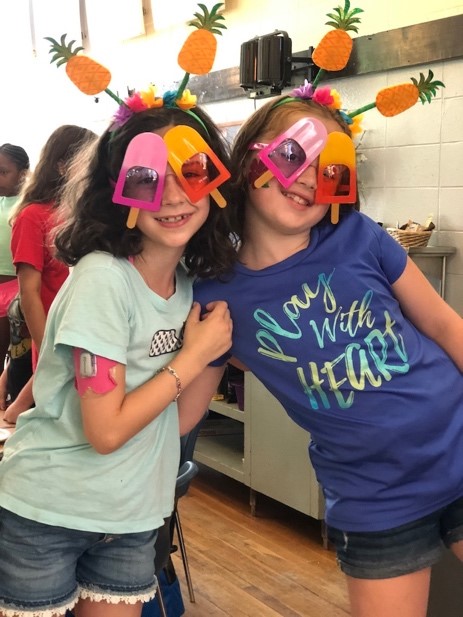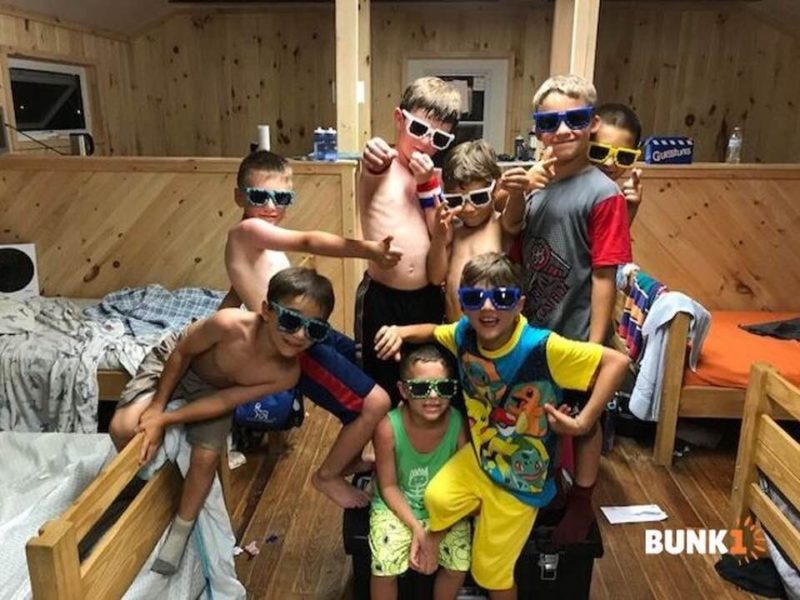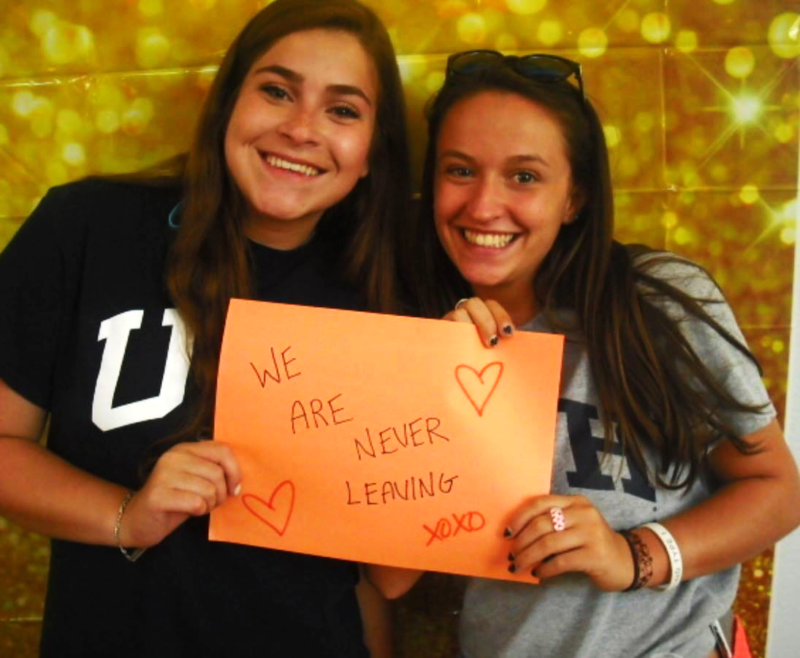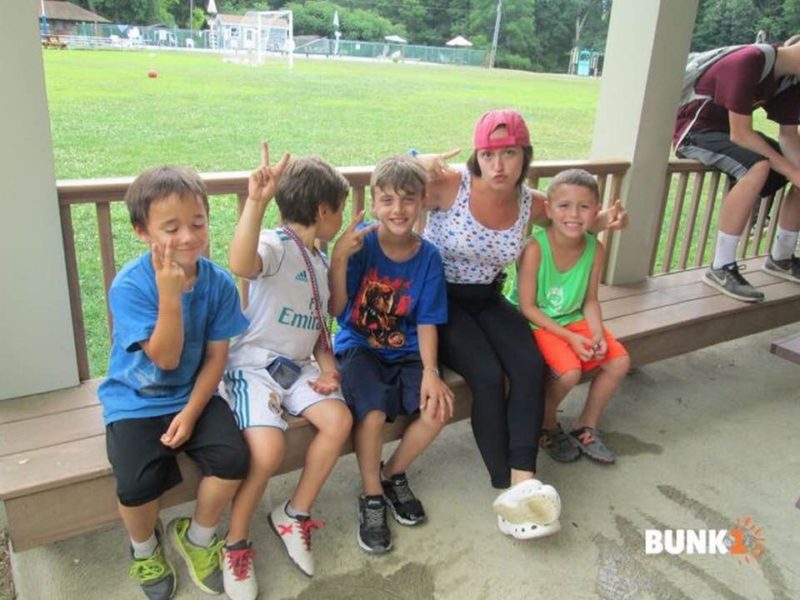For parents of kids with type 1 diabetes (T1D), summer camp can be a scary proposition. Would someone check my child’s BG at night? What if my child can’t count carbs yet? Who will help change their pump sites and CGM? Like most T1D questions, the best answers often come from experienced T1D families and few organizations know more T1D families – and more about summer camp – than Camp Nejeda.
A home away from home for thousands of kids with T1D since 1958, Camp Nejeda blends traditional camp fun with hands-on education. Campers meet other kids with T1D and live alongside counselors with T1D and an onsite medical team that provides coaching, feedback, and psychosocial support. The camp’s beautiful 72-acre campground in Sussex County includes a seven-acre lake, 650’ zip line, archery range, basketball and volleyball courts, low-ropes course, and hiking and biking trails.
Camp Nejeda asked two camper parents – Shannon, mom to Cooper (age 8), and Eva, mom to Isa (age 9 ½) – to answer some typical questions about their child’s Camp Nejeda experience. Former camper and current camp staff member Haley (age 20) also was happy to share memories of being a first-time camper at just 6 and why she and so many other kids come back to Camp Nejeda year after year.
How old was your child when they were diagnosed with T1D?
Shannon: Cooper was diagnosed with type 1 diabetes at 3 years old. A year later at 4 years old, he was

Crazy camp fun takes place all day long, even during mealtimes as when Isa (R) and a friend dressed up for “Twin Lunch.”
diagnosed with Celiac Sprue.
Eva: Isa was diagnosed at 6 ½ years old.
At what age did your child first come to Camp Nejeda?
Shannon: Cooper and I talked about it when he was 7 years old, but he was nervous and said he’d like to try the following year. We visited camp at the end of the summer, and after his tour he didn’t want to leave. All he needed was to see the camp and meet the staff for him to embrace it. We signed up for the following summer and it was a long year of built-up excitement!
Eva: Isa was 7 years old her first summer at camp. We did family camp first which was a great experience, and we signed her up right away for summer camp.
What’s your child’s biggest diabetes-related challenge?
Eva: Isa’s biggest challenge with diabetes is not feeling normal. She knows many children with diabetes but feeling different than her family and other friends is an issue for her.
What did your child take away from his/her experience at camp?
Shannon: Cooper was so shocked by the number of people in one place who all had type 1 diabetes. As the only kid in his school with type 1 diabetes, he found comfort in knowing there’s this special place, not too far from home, where he can go every summer and not have to explain type 1 diabetes. He came home more independent because of positive peer pressure and knowing that he can go somewhere without his parents and still be safe.
What did your child learn at camp?
Eva: She learned how to give herself injections and how to change her own pump. She learned more about carb counting and different snack choices. She learned she can be a normal kid that can go to camp! Every time she goes, she acquires new skills and independence when it comes to managing her diabetes.
What was your child’s favorite part of camp/what did he/she like most about camp?
Shannon: Cooper loved archery, ga-ga and playing different games. He liked hanging out in the cabin with his new friends and counselors. He’s still in touch with many of the friends he met at camp. Those friendships mean a lot to him. He liked all the gluten free food options. He loved everything!
What was your biggest struggle as a parent during your child’s first time away at camp?

Kids living with T1D come together and make friendships that last a lifetime at Camp Nejeda. Cooper (bottom center) enjoys playtime with his bunk-mates.
Eva: I worried about her night-time lows, but once we got through that first week, going back each summer was easier for me. I found trust in the staff. As T1D parents we are so controlling and I was so reliant on her sensor (CGM). What’s great is that the staff is getting an alert and we don’t see it. We need a break even if we don’t want it. The other thing that helped me get through her week at camp is the photos they share of all the kids having a great time with new friends. We live for those photos.
What did YOU learn from your child’s time at camp?
Shannon: I learned it’s okay to disconnect and trust that the staff at camp are more than capable of handling his care. I learned this is an experience that will forever be with Cooper. I learned that the time spent at camp, the relationships he has made (and will continue to make) and things he has learned are irreplaceable.
Eva: I learned the importance of a community of children for my child. I also learned that giving my child independence will help her better manage her diabetes.
What would you tell another parent who is hesitant about sending their child to camp?
Shannon: I would tell them that if I can send my child to camp, then anyone can! I would tell them that the amount of trained staff in one place is safer than anywhere else.
Eva: For the children to be able to be around other children and counselors with T1D really allows them to blossom in a way that they wouldn’t be able to blossom at home.
_______________________________________________________________________
Haley, you’re 20 now. How old were you when you started coming to camp?
I was 6 years old (turning 7 that summer) and now have been coming to camp for 14 years.
Were you homesick or nervous about leaving your parents your first year at camp?
I was only a little homesick since my parents signed me up for the one-week session to start. I remember

Almost all of Nejeda’s counselors, including Haley (L) and Gillian (R) were once campers themselves.
getting homesick at night before bed, but during the day I was occupied with activities and didn’t think about missing home. I also had attended family camp a few weeks before with my parents, so I was familiar with the camp a little bit.
Had you ever slept away from home before your first session at camp?
No, this was my first time being away from home without my parents.
How was that first year at camp?
I remember being really excited to go to camp after attending the family camp program a few weeks before. Obviously I had a great time at camp — I’ve been coming back every summer since! The counselors were great and I still remember some of my earliest counselors to this day! I loved all of the camp’s unique traditions and how everyone felt like a family. The counselors and staff took great care of me and my diabetes; I remember my parents being so shocked at how good my numbers had been that week when they came to pick me up.
What are some things you’ve learned at camp?
I learned there are many people with diabetes who have gone through the same things that I have. I only knew one other diabetic in my hometown/school so meeting other diabetics at a young age taught me I was not alone. I also learned my camp friends would always be there for me. My best friends are the ones I met and grew up with at camp. Now we’re all in college and look forward to seeing each other at every break. I also learned how to become more independent and what it was like to be away from home. My friends and I always agree that going to camp for so many years prepared us for college.
How is the food at camp? Are there choices of food to eat?
I liked the food at camp; they have a bunch of choices and accommodate all food allergies.
What made you want to stay involved with camp and become a camp counselor?
I always looked up to my counselors at camp and knew I wanted to be just like them when I was older. The staff at Camp Nejeda is truly special because we all have grown up together and been going to camp for a while. As a staff, we remember camp the way our old counselors taught us, and want to keep that spirit and tradition alive.
How has camp changed in terms of the way technology and diabetes management are handled?

Kids of all ages and stages have fun in the sun. Cooper (R) is seen here spending time with his friends during playtime.
Diabetes management has changed a lot since I started going to camp almost 15 years ago. Especially this past summer the camp started pre-meal bolusing, which I think worked out really well for the kids. Everything continues to change now that technology has been improving and getting more advanced; I think the camp is aware of that and making changes to accommodate new technologies.
What is your most memorable experience at camp?
My first summer as a counselor I had a cabin of girls in the oldest session and learned it was the first year at camp for all. This was pretty rare for the oldest session of campers since many by that age have been to camp before. I was determined to give these girls the best two weeks so they’d all want to come back the following summer. To this day they’re all still friends and continue to come back to camp each summer because they love it so much. This past summer they started working as counselors so I got to work with them. It was really cool to see these girls who came to camp for the first time just a few years ago working at camp and loving it so much.
What does camp mean to you now, as an adult?
I am forever thankful for camp and cannot imagine my life without it. When I think of camp I think of the amazing memories I made and the friendships that will last me a lifetime. Through my summers at camp I was able to learn and grow; I wouldn’t be the person I am today if I hadn’t gone to Camp Nejeda. My friends from camp and I even got matching tattoos that represent our friendship and memories we made at camp, and now every time I look at it I am reminded of this special place.
With many of Camp Nejeda’s 2019 sessions filling up quickly, now is the time to ask your own questions about visiting or registering for summer camp! The camp’s Open House on Saturday, May 4 is the best time to visit, though tours are available by appointment anytime during the year. Prospective camp families can visit www.CampNejeda.org to watch a video of campers, counselors, and alumni sharing what the camp has meant to them as well as learn about upcoming programs and dates for 2019 sessions. Don’t forget to check out information on Family Camp and BFF Weekend programs, which are great introductions to Camp Nejeda.
Specific questions can be submitted via the website’s online contact form and a staff member will reply. Camp staff also will be available at Breakthrough T1D’s TypeOneNation Summit on March 9th. Don’t delay – find out how Camp Nejeda’s blend of diabetes education, emotional support, and traditional camp fun keeps Cooper, Isa, Haley, and hundreds of other campers and counselors coming back year after year!